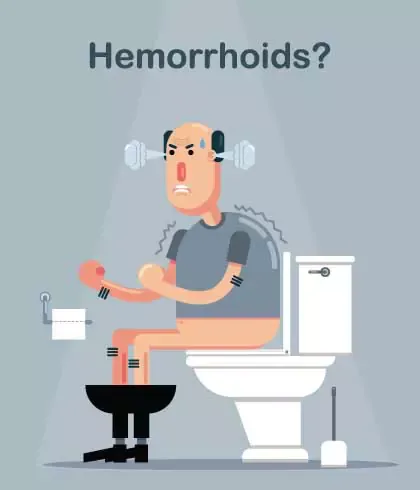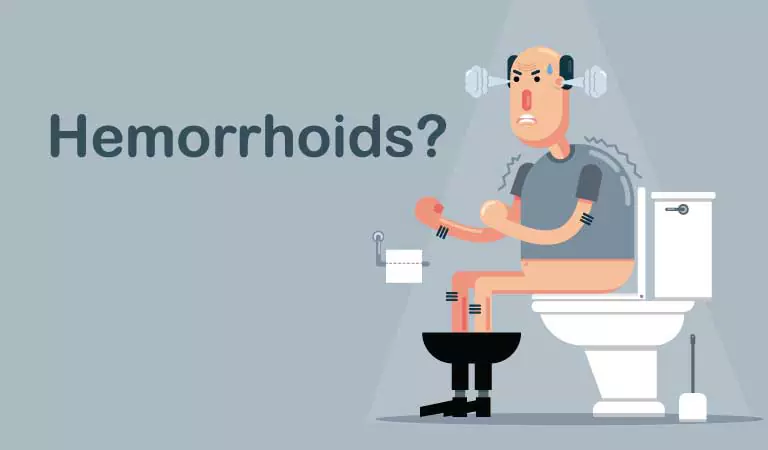

Foods to eat and avoid if you are suffering from piles
Posted by
Dr. Batra’s™
Last updated: August 11, 2025
Piles, or haemorrhoids, are swollen blood vessels in the rectal or anal area. They can cause significant pain, discomfort, and bleeding, especially during bowel movements.
Types of Piles:
- Internal Piles: It cannot be felt as it occurs in the anal canal. When the disorder progresses, the piles protrude
- External piles: The swelling can be felt around the anal canal
Grades of Piles
- First grade piles develop inside the anal canal or the rectum
- Second grade piles are protrusions from the anus, they return inwards on their own
- Third grade piles are similar to second grade piles, but protrusion needs to be pushed back manually
- Fourth grade piles is a protrusion that hangs outside of the anal canal
Symptoms
- Pain is the most common symptom in external piles. This can get worse while straining to pass stools. Pain can be accompanied with burning before, during or after passing stools in some cases.
- There may also be discharge of mucous with itching around the anal orifice.
- Chronic Constipation: when one is constipated, one tends to exert pressure to empty the bowels. Slowly, the pressure affects the blood vessels in and around the anus. This may lead to piles.
- Bleeding: Fresh blood from the anus is one of the earliest symptoms of piles. Bleeding can occur during, before or after passing stools.
- Unsatisfactory Evacuation: Individuals, who suffer from piles, often feel that they have not been able to evacuate their bowels completely.
Homeopathy treatment for Piles
- Homeopathy treatment for piles is a holistic approach
- Treatment of piles with homeopathic medicine help to reduce intensity and frequency of the complaints
- Piles treatment in homeopathy increases disease-free period
- Homeopathic treatment for piles helps to reduce intake of conventional medicines
- It is a natural medicine to Reduce pain • Bleeding • Infection
- Piles treatment in homeopathy could also help to treat underlying diseases such as constipation, fissure and fistula
- Piles treatment in homeopathy helps to decrease recurrence of piles
- Homeopathy is a noninvasive and painless way of treating piles
- Grade 1 and 2 piles can be significantly helped with homeopathy. In Grade 3 piles, symptoms can be relieved by homeopathy but cannot be completely treated. In Grade 4 piles. There would be symptomatic relief with homeopathy. Surgery may be considered, if symptoms are unbearable and persistent.
Do It Yourself
- A high fiber diet rich in fruits, vegetables, whole grains (or fiber supplements) can prevent constipation and thus also hemorrhoids to develop. The fiber will help keep the bowel movements regular and the fluid will keep them softer so they are easier to pass without straining. Foods rich in fiber are whole grains bread and cereals, beans, brown rice and other grains, nuts and seeds, fruits and vegetables fresh or lightly cooked.
- Flax seeds are rich in Omega 3 and easy to add to your daily food.
- Be sure to increase your dietary fiber slowly. A sudden increase in fiber may cause diarrhea, bloating, intestinal gas, or another discomfort. So if you are frequently constipated, have a high fiber diet and plenty of fluids.
- Drink lots of fluid, at least 8 glasses each day. Drinking fluids results in softer, bulkier stools. A softer stool makes emptying the bowels easier and lessens the pressure on hemorrhoids caused by straining. Eliminating straining also helps prevent the hemorrhoids from protruding.
- Avoid highly refined foods like white rice, white bread, pastries, cakes, etc.
- Alcohol should also be avoided as it can contribute to small, dry stools.
- Avoid acid-forming foods such as sugar, animal protein, dairy, and caffeine-containing food and beverages.
Key Takeaways
- Piles are swollen blood vessels in the anus that cause pain and discomfort.
- There are different types and grades of piles, ranging from internal to external and from mild to severe.
- Symptoms include pain, itching, bleeding, and a feeling of incomplete bowel evacuation.
- Homeopathy offers a natural treatment for piles, helping reduce symptoms and frequency, especially in early stages.
- A high-fiber diet and plenty of fluids can help prevent and manage piles by easing bowel movements.
FAQs
What foods help reduce symptoms of piles naturally?
Fiber-rich foods like fruits, vegetables, whole grains, and legumes help soften stools and ease bowel movements, reducing strain and discomfort caused by piles.
Which foods should be avoided if you have piles?
Avoid spicy foods, processed items, red meat, and low-fiber foods like white bread or fried snacks, as they can worsen constipation and inflame piles.
Can a high-fiber diet help with piles recovery?
Yes, a high-fiber diet adds bulk to the stool and promotes smoother bowel movements, helping prevent straining and aiding faster recovery from piles.
Are spicy foods bad for people with piles?
Yes, spicy foods can irritate the digestive tract and worsen the symptoms of piles, leading to increased pain, inflammation, and discomfort during bowel movements.
How does hydration impact piles treatment?
Staying well-hydrated helps keep stools soft and prevents constipation. Drinking plenty of water is essential for reducing strain and promoting healing from piles.

